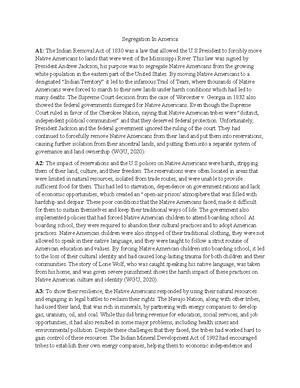Analyzing The Arguments For And Against Saskatchewan's Separation From Canada

Table of Contents
Arguments For Saskatchewan's Separation from Canada
Proponents of Saskatchewan's independence cite several key reasons for pursuing separation. These arguments often center on economic control, greater political autonomy, and a desire to address historical grievances.
Economic Autonomy and Resource Control
A primary driver of the separatist movement is the belief that Saskatchewan would experience significantly greater economic prosperity with independent control over its vast natural resources. The province possesses significant reserves of oil, potash, and uranium, generating substantial revenue but also sparking debates about fair taxation and resource allocation. Many argue that the current federal system doesn't adequately reflect Saskatchewan's unique economic contributions.
- Increased control over resource royalties: Independent control would allow Saskatchewan to set its own royalty rates, potentially leading to higher provincial revenues and increased investment in infrastructure and social programs.
- Potential for attracting foreign investment more easily: A separate Saskatchewan could potentially negotiate more favorable terms with foreign investors, fostering economic growth and diversification.
- Development of independent trade agreements: Free from federal trade policies, Saskatchewan could forge its own international trade agreements, tailored to its specific economic needs and priorities. This could lead to increased export opportunities and economic diversification.
Greater Political Self-Determination
Beyond economic considerations, many proponents argue for separation to achieve greater control over provincial laws and policies. The feeling is that Saskatchewan's unique needs and values are not always adequately reflected in federal legislation, leading to a sense of political marginalization.
- More direct representation of Saskatchewan interests: An independent Saskatchewan would have complete control over its political system and could prioritize issues specific to its population.
- Reduced federal bureaucracy and regulations: Separation could streamline governance, eliminating layers of federal bureaucracy and reducing regulatory burdens on businesses and individuals.
- Ability to tailor legislation to provincial circumstances: An independent Saskatchewan could craft laws and regulations specifically designed to address the province's unique social, economic, and environmental circumstances.
Addressing Western Alienation
The debate around Saskatchewan's separation is deeply intertwined with the broader historical narrative of Western alienation. For decades, Western provinces have felt underrepresented in federal politics and perceived as economically exploited by the central government in Ottawa. This sense of inequity fuels the separatist movement.
- Feeling of being underrepresented in federal politics: Saskatchewan's relatively small population compared to Ontario and Quebec means its voice is often drowned out in national political discourse.
- Perceived economic exploitation by the central government: Many believe that the current system of federal taxation and transfer payments does not adequately compensate Saskatchewan for its contributions to the national economy.
- Desire for a stronger regional identity: Separation is seen by some as a way to assert a distinct Saskatchewan identity and foster stronger regional pride and unity.
Arguments Against Saskatchewan's Separation from Canada
While the arguments for separation are compelling to some, significant hurdles and potential drawbacks exist. Analyzing these counterarguments reveals the complexities of this issue.
Economic Challenges of Independence
The economic realities of independence present substantial challenges. Separation would likely lead to a significant loss of federal funding and potentially disrupt established trade relationships.
- Loss of access to the Canadian market: Separation could create trade barriers with Canada, harming Saskatchewan's economy and potentially disrupting established supply chains.
- Increased trade barriers with other countries: Establishing new international trade agreements as an independent nation would be a lengthy and complex process.
- Potential for economic instability during the transition: The transition to independence would likely be economically disruptive, potentially leading to instability and uncertainty.
Social and Cultural Implications
Separating from Canada would have far-reaching social and cultural consequences. Shared national programs and social safety nets would be jeopardized, impacting healthcare, education, and social services.
- Disruption of healthcare and social safety nets: Maintaining the current level of social services in an independent Saskatchewan would be challenging, potentially requiring significant adjustments and cuts.
- Challenges to maintaining existing social programs: Funding and administration of social programs could be severely impacted by the loss of federal support and the need to establish new national programs from scratch.
- Potential for social fragmentation: Separation could lead to social divisions and tension, particularly concerning issues of identity and cultural heritage.
Practical and Logistical Hurdles
The practicalities of separation are immense. Dividing assets, resources, and liabilities between Saskatchewan and the rest of Canada would be a complex and lengthy process involving numerous legal and constitutional battles.
- Redrawing of provincial boundaries and infrastructure: Physical infrastructure, such as transportation networks and utilities, would need to be divided and re-organized.
- Complex legal battles over resource ownership: Disputes over the ownership and control of natural resources would likely arise, leading to protracted legal battles.
- Potential for protracted and costly negotiations: Negotiating a separation agreement would be a lengthy and complex undertaking, involving numerous stakeholders and demanding significant resources.
Conclusion: Weighing the Future of Saskatchewan within Canada
The debate surrounding Saskatchewan's separation from Canada is multifaceted and involves complex economic, political, and social considerations. While proponents highlight the potential for greater economic autonomy and political self-determination, opponents point to the significant economic challenges, social disruptions, and logistical hurdles associated with separation. Ultimately, the decision to pursue independence would have profound and lasting consequences. Understanding the full spectrum of arguments is crucial to forming an informed opinion on this complex issue. Continue the discussion by researching further into the complex arguments surrounding Saskatchewan's separation from Canada and share your thoughts!

Featured Posts
-
 Warner Bros Developing Film Based On Popular Reddit Story Starring Sydney Sweeney
May 22, 2025
Warner Bros Developing Film Based On Popular Reddit Story Starring Sydney Sweeney
May 22, 2025 -
 Vidmova Ukrayini Vid Nato Poglyad Yevrokomisara Ta Ekspertiv
May 22, 2025
Vidmova Ukrayini Vid Nato Poglyad Yevrokomisara Ta Ekspertiv
May 22, 2025 -
 Columbus Gas Station Prices Vary By 48 Cents
May 22, 2025
Columbus Gas Station Prices Vary By 48 Cents
May 22, 2025 -
 Analyzing Dexters Resurrection The Villains Impact On The Show
May 22, 2025
Analyzing Dexters Resurrection The Villains Impact On The Show
May 22, 2025 -
 2025 Emmy Awards Who Will Win Lead Actress In A Limited Series
May 22, 2025
2025 Emmy Awards Who Will Win Lead Actress In A Limited Series
May 22, 2025
